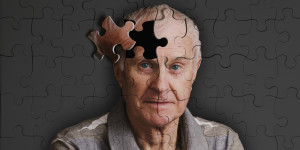Everyone has a different routine when they wake up, whether it’s watching the news, drinking coffee on the porch listening to the birds sing, or singing along to your favorite song on the way to work. What if one morning you woke up and could barely or not at all hear the sound coming from your television, the birds singing or the music on the radio? According to the World Health Organization (WHO) up to 360 million people have impaired hearing nationwide.
Growing older comes with many advantages along with disadvantages, one being hearing loss. In older adults hearing loss is the third most prevalent chronic health condition. Two-thirds of Americans have hearing loss by the time they reach their 70’s. The failure to hear can cause a devastating toll on an individual. It is hard enough to suffer from hearing loss and now there are many studies that show a link between hearing loss and developing dementia.
In 2013 Frank Lin, M.D. published a study in the Journal of American Medical Association, Internal Medicine. The conclusions he and his colleagues found showed older adults with hearing loss had a greater chance of developing problems with memory and thinking than other people who were the same age and still had normal hearing. The question is why would hearing loss presage cognitive loss?
Lin and his colleagues proposed that hearing loss can lead to social isolation, and social isolation and loneliness in turn might lead to cognitive decline. Loneliness in older adults has been linked in past studies with cognitive decline and dementia.
The ability to communicate with family, friends or any other individual is one of the most important aspects of our lives. There are a number of contributing factors to hearing loss such as age, genetics, noises and chronic diseases. Even though we cannot control hearing loss only 20% of the individuals who may benefit from treatment actually pursue help.
Researchers at John Hopkins University have been performing studies since 1990 to determine if hearing aids can reduce the chance of cognitive problems. Participants were tested on memory, learning, attention and language. Participants who did not wear hearing aids had the greatest decline in cognitive abilities. However, the participants who wore hearing aids after 20 years were barely below those with normal hearing.
If you start to have any symptoms of hearing loss seek help immediately. Waiting to speak with a professional can develop into worse complications. To learn more information on cognitive decline and hearing loss speak to an audiologist today.


